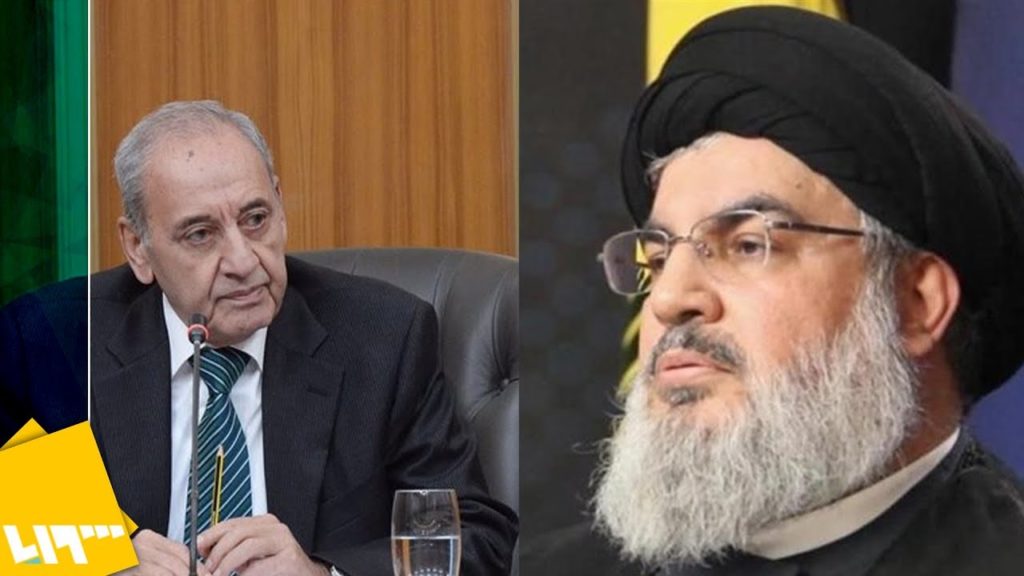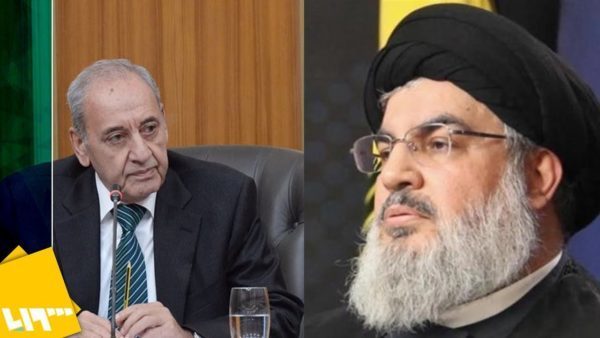BEIRUT, Lebanon- Hezbollah which along with its ally the Amal Movement has been setting very difficulty conditions for formation of the cabinet , shifted the blame to the US . It accused U.S. administration of obstructing the cabinet formation, as faltering efforts to form a cabinet have cast doubt on prospects for a French initiative to lift the nation out of crisis.

Hezbollah, a Shi’ite Muslim movement backed by Iran that Washington and several Arab countries deem a terrorist group, is one of the parties at the heart of a dispute that has complicated the process.
France has been leaning on Lebanon’s fractious, sectarian leaders to form the government to carry out economic reforms to address the deepest crisis since the 1975-1990 civil war.
A deadline agreed between Lebanese politicians and Paris for forming the government passed on Tuesday without progress.
Hezbollah and its Shi’ite ally the Amal Movement insist on naming Shi’ite ministers in the cabinet and say its ministers must include the finance minister, which has been held by a Shiite close to Berri and Hezbollah for the past 10 years .
Hezbollah’s parliamentary bloc said the French initiative was important but said the U.S. administration “is the one responsible for obstructing the efforts to form the government”.
Parliament Speaker Nabih Berri, the Amal chief, became more insistent on naming the finance minister after Washington last week imposed sanctions on his senior aide for corruption and enabling Hezbollah, political sources from several parties say.
The aide, Ali Hassan Khalil, previously served as finance minister.
Hezbollah’s parliamentary bloc indicated a cabinet might still be formed, saying it “still sees the opportunity available to renew that which was wrecked by those who handling, in the shadows, the operation of forming the new government”.
Prime Minister-designate Mustapha Adib, a Sunni Muslim named under French pressure, has been working on proposals to switch control of ministries, many of which have been held by the same factions for years, political sources say.
Adib, who has the critical backing of former prime minister Saad al-Hariri, Lebanon’s leading Sunni politician, said he did not want to deviate from his mission of forming a government of specialist ministers, a source close to him said.
Adib said that, if a government of specialist ministers could not be formed, then a different approach would be needed but said “this does not correspond with the mission I was tasked with,” according to the source.
Last chance
France said on Wednesday it regretted that Lebanese political leaders have failed to form a new government in line with a commitment made to President Emmanuel Macron, but that it was not too late to do so.
The statement by Macron’s office came after Lebanese politicians missed a 15-day deadline to form a crisis Cabinet, with many remaining deadlocked on Wednesday on which political faction gets to have the key portfolio of the finance ministry.
The deadline was set as part of a French initiative by President Macron who has been pressing the leaders in Lebanon to form a Cabinet made up of specialists who can work on enacting urgent reforms to extract the country from a devastating economic and financial crisis.
“It is not yet too late: everyone must assume their responsibilities and finally act in the sole interest of Lebanon by allowing Moustapha Adib to form a government that reflects the seriousness of the situation,” the French statement said, referring to the Lebanese prime minister-desginate.
The French leader has described his initiative, which includes a road map and a timetable for reforms, as “the last chance for this system.”
While initially committing to the plan and naming a new prime minister-designate who promised to deliver a Cabinet within two weeks, Lebanese politicians have been unable to meet the deadline amid divisions over the initiative itself and the manner in which the government formation is being carried out, away from the usual consultations and horse-trading among political factions.
Last chance to save Lebanon
Walid Joumblatt, a leading politician and head of the Progressive Socialist Party said some people “do not understood or do not want to understand that the French initiative is the last chance to save Lebanon and prevent its demise.”
Macron has visited Lebanon twice in less than a month, trying to force change on its leadership amid the crises and last month’s massive explosion in Beirut’s port.
Lebanon, a former French protectorate, is mired in the country’s worst economic and financial crisis in its modern history. It defaulted on paying back its debt for the first time ever in March, and the local currency has collapsed, leading to hyperinflation and soaring poverty and unemployment.
The small, cash-strapped country is in desperate need of financial assistance but France and other international powers have refused to provide aid before serious reforms are made. The crisis is largely blamed on decades of systematic corruption and mismanagement by Lebanon’s ruling class.
Hezbollah militant does not appear to be too concerned about the Lebanese economy primarily because it is controlled and funded by the al Quds Force of the Islamic Revolutionary Guard Corps ( IRGC) . In addition the group is involved in money laundering , drug trafficking and smuggling operations through the Beirut port, airport and several illegal border crossings .
As a result of the sanctions on Iran, Hezbollah has been increasingly relying on criminal revenue streams from a wide array of sources that include the Lebanese diaspora, group members, affiliates, sympathizers, and unwitting collaborators. The organization has even been competing for money laundering contracts in the same manner as Colombian cartels and other criminal organizations in south America , Africa and North and Central America.
Currently Hezbollah controls all the 3 branches of government ; the presidency through its ally president Aoun, the parliament through its ally Speaker Berri and the government through its chosen caretaker PM Hassan Diab
(Reuters) /Ya Libnan


Leave a Reply
You must be logged in to post a comment.